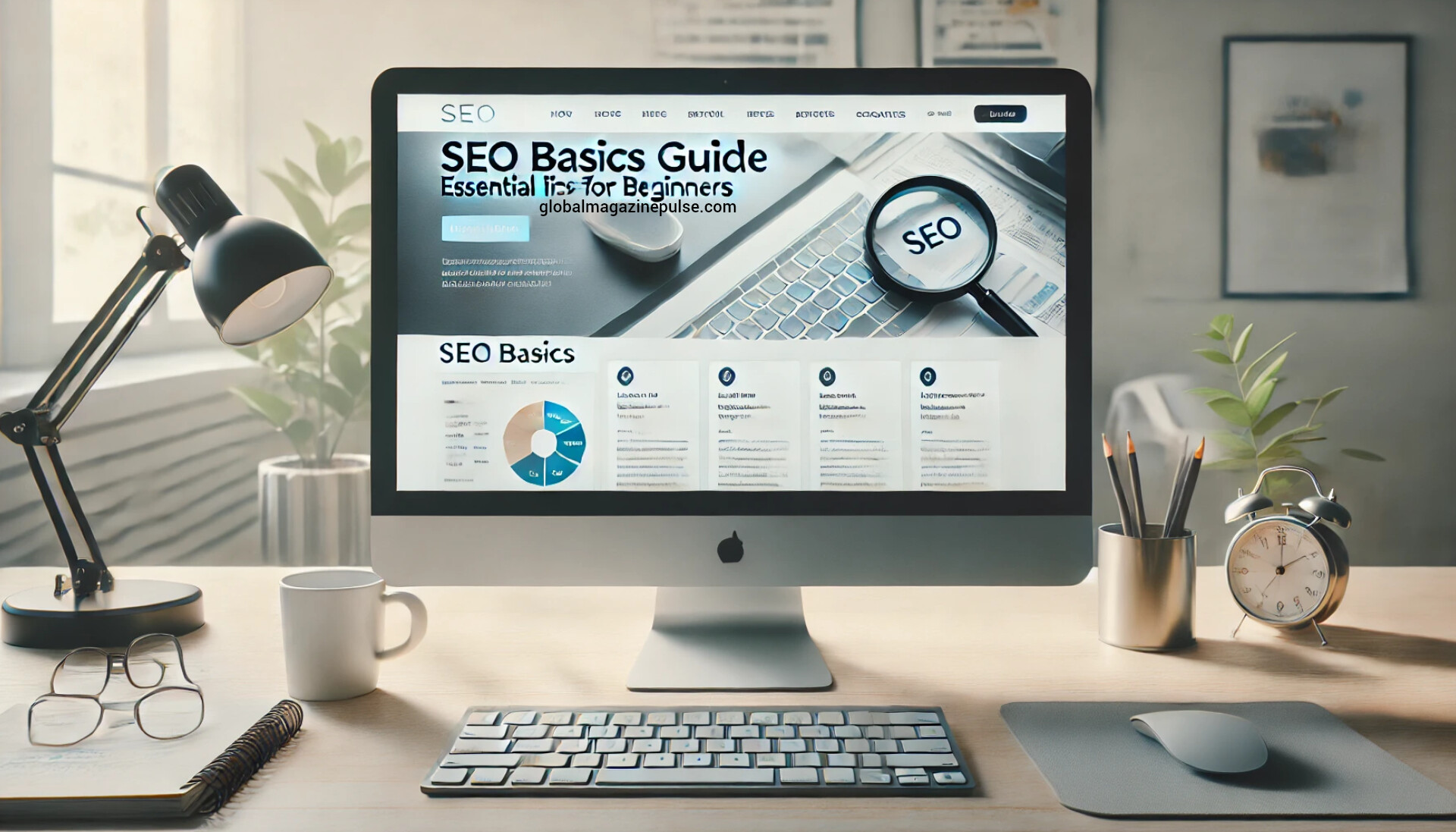Diving into SEO can feel like entering a maze without a guide. The jargon, strategies, and techniques can be overwhelming. But with a solid understanding of the basics, you can create a strong foundation for your webstie’s success. Here’s a simple guide to help you get started with SEO.
What is SEO
SEO stands for Search Engine Optimization. It’s the process of improving your website so it ranks higher in search engine results. The higher your site appears, the more likely people will visit it. SEO is all about making your website more attractive to search engines like Google, ensuring that when people search for topics related to your site, they find you first.
Why Does SEO Matter
Most online experiences start with a search engine. If your website isn’t showing up in search results, especially on the first page, you’re missing out on a lot of potential visitors. SEO helps you reach the right audience—people already interested in what you offer. Good SEO means more traffic, more engagement, and more opportunities to convert visitors into customers.
1.Begin with Keyword Research
Keywords are the words and phrases people type into search engines. Think of them as the bridge between what people are searching for and the content you provide. If you run a bakery, potential keywords could be “best bread in [your city]” or “how to bake sourdough.”
Here’s how to find the right keywords:
– Step into Your Customer’s Shoes: What would you search for if you needed your product or service?
– Use Keyword Tools: Tools like Google Keyword Planner or Ubersuggest can help you discover popular keywords related to your business.
– Target Long-Tail Keywords: These are longer phrases like “best gluten-free bakery in Chicago.” They attract more specific traffic, often leading to higher conversion rates.
2.Optimize Your On-Page SEO
On-page SEO refers to elements you can control on your website. This includes:
– Title Tags: Each page needs a unique title tag with your main keyword. This is what appears in search results, so make it compelling.
– Meta Descriptions: This is the brief summary that appears under your title in search results. While it doesn’t directly affect rankings, a well-crafted meta description can boost your click-through rate.
– Headers: Use headers (H1, H2, H3) to structure your content. Include your main keyword in your H1 and use subheaders to break down your content.
– URL Structure: Keep your URLs short, descriptive, and include your main keyword. For example, instead of www.example.com/page1, use www.example.com/seo-basics-guide.
– Internal Linking: Link to other relevant pages on your site. This helps search engines understand your site’s structure and keeps visitors engaged longer.
– Alt Text for Images: Use descriptive alt text that includes relevant keywords. This helps search engines understand your images and improves accessibility.
3.Create Quality Content
Content is the core of SEO. Search engines favor websites that offer valuable, informative, and original content. Here’s how to create content that ranks:
– Answer Questions: Consider the questions your audience might have and create content that provides clear, helpful answers.
– Keep It Fresh: Regularly update your content or add new articles and blog posts. Fresh content keeps your site relevant and engaging.
– Make It Easy to Read: Use short paragraphs, bullet points, and images. A readable site is not only better for your visitors but also improves your SEO.
– Use Keywords Naturally: Integrate your keywords into your content naturally. The goal is to make your content helpful and engaging, not stuffed with keywords.
- Focus on Technical SEO
Technical SEO involves optimizing your site’s backend to help search engines crawl and index your content effectively. Key areas include:
– Mobile-Friendliness: Ensure your site is responsive and works well on all devices. Google primarily ranks sites based on their mobile versions.
– Page Speed: A slow site can hurt your rankings. Use tools like Google PageSpeed Insights to check your site’s speed and make improvements.
– Secure Your Site: Having a secure website (HTTPS) is important for both SEO and building user trust.
– Fix Broken Links: Regularly check for and fix broken links. Broken links can hurt your SEO and provide a poor user experience.
– Create a Sitemap: Submit a sitemap to search engines to help them understand your site’s structure and index it more effectively.
- Build Quality Backlinks
Backlinks are links from other websites to yours. They’re like votes of confidence, showing search engines that your site is trustworthy and relevant.
– Create Shareable Content: High-quality, unique content is more likely to be shared and linked to by others.
– Guest Blogging: Write guest posts for reputable sites in your industry, including a link back to your site.
– Outreach:Reach out to industry blogs, websites, and influencers to promote your content and encourage them to link to it.
6.Monitor and Adjust Your Strategy
SEO is an ongoing process. You need to regularly monitor your progress and adjust your strategy based on what’s working. Use tools like Google Analytics and Google Search Console to track your success.
– Check Keyword Rankings: Regularly review how your keywords are performing in search results.
– Analyze Traffic Sources: Understand where your visitors are coming from and which pages are driving the most traffic.
– Update Content: If certain pages aren’t performing well, consider updating them with new keywords or fresh content.
Final Thoughts
SEO doesn’t have to be intimidating. By focusing on these essential tips, you can lay a strong foundation for your website. Remember, SEO takes time and patience, but the results are worth it. Stay consistent, keep learning, and be ready to adapt as search engines change. Over time, your efforts will pay off with higher rankings and more traffic.
Frequently Asked Questions [ FAQs ]
What is SEO?
SEO stands for Search Engine Optimization, a process to improve your website’s visibility in search engine results.
Why is SEO important?
SEO helps attract more visitors to your site by ranking higher in search results, leading to more traffic and potential customers.
How do I start with SEO?
Begin with keyword research, optimize your content and site structure, and focus on creating valuable, relevant content.
How long does it take to see results from SEO?
SEO is a long-term strategy, and it usually takes several months to start seeing noticeable results.





